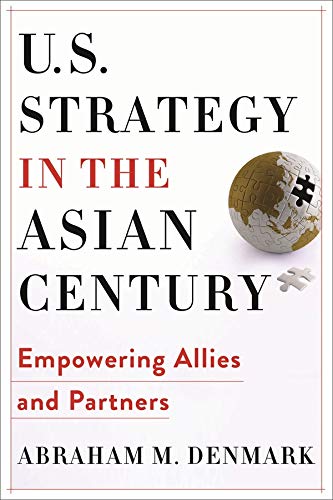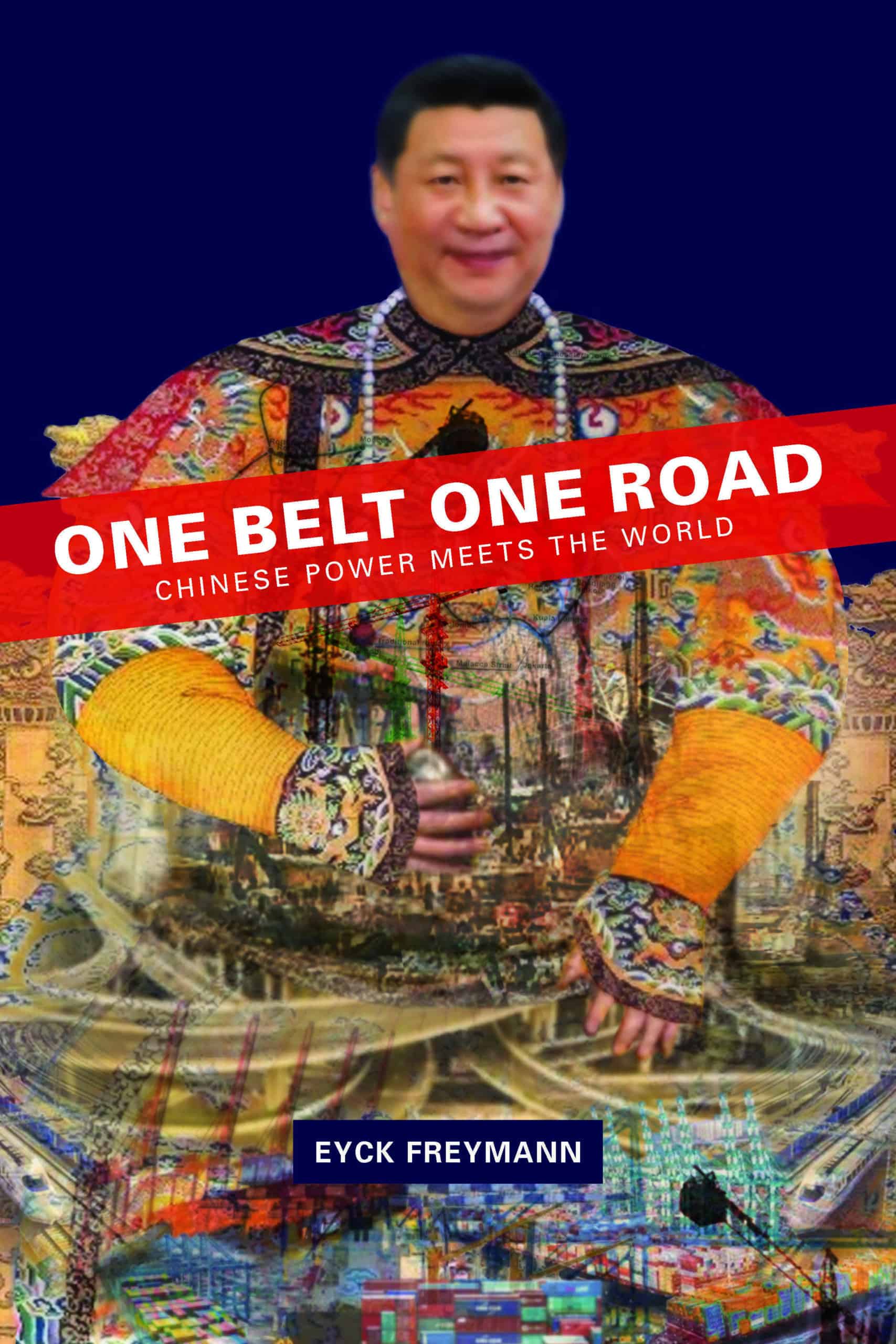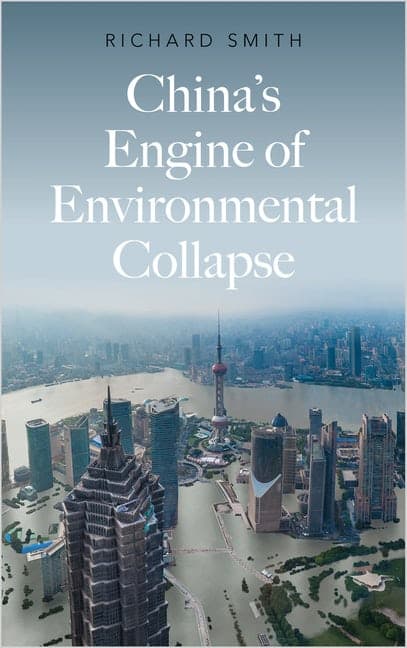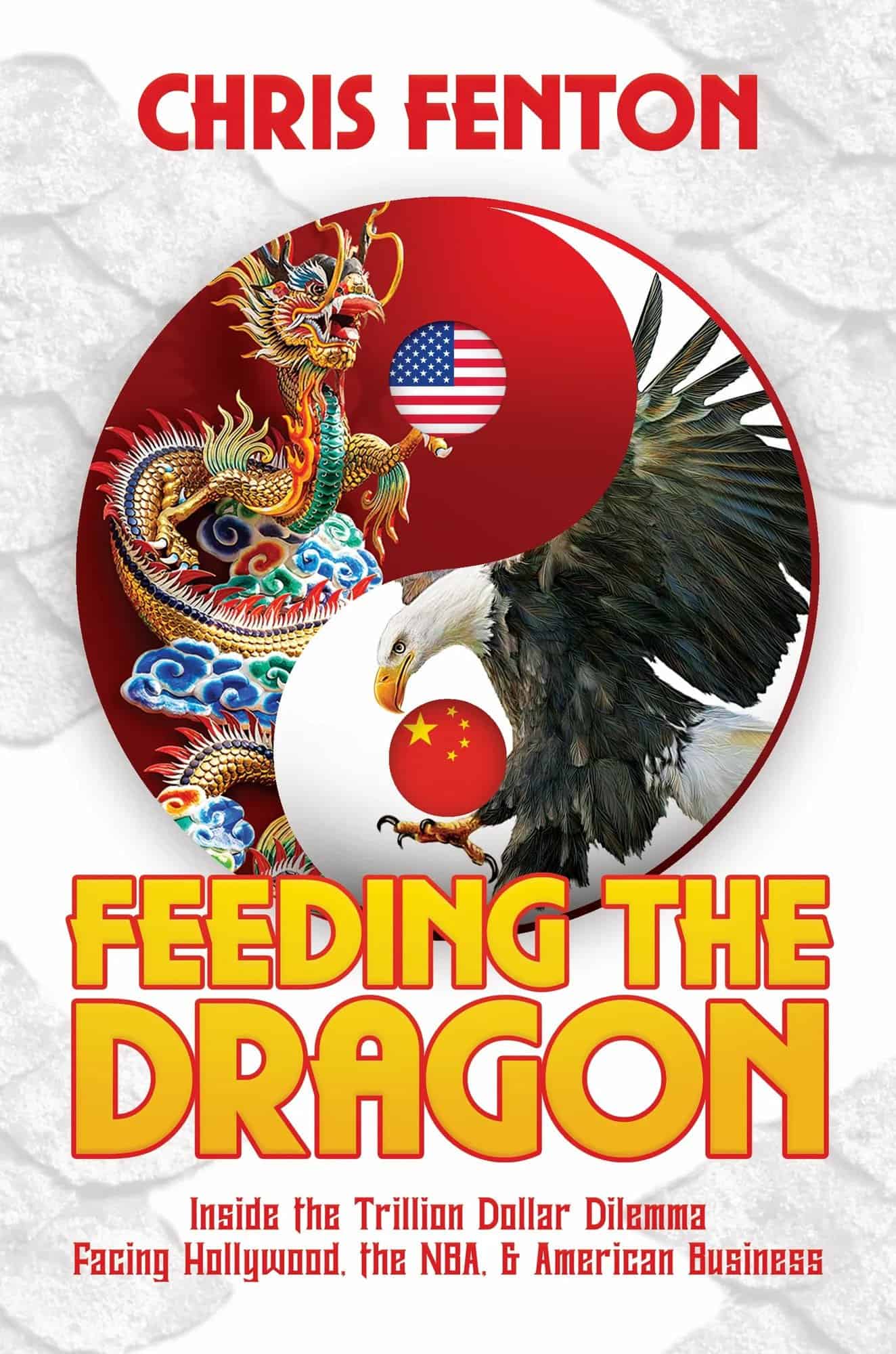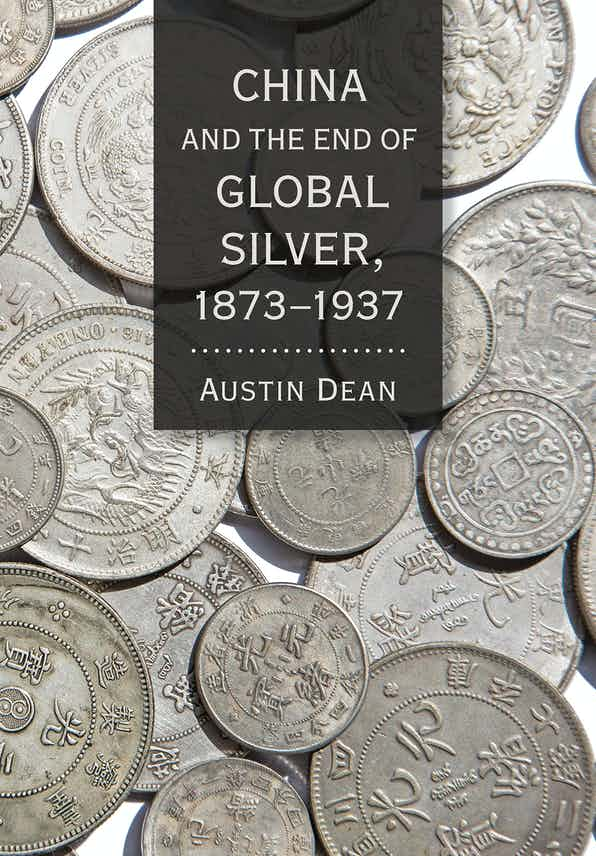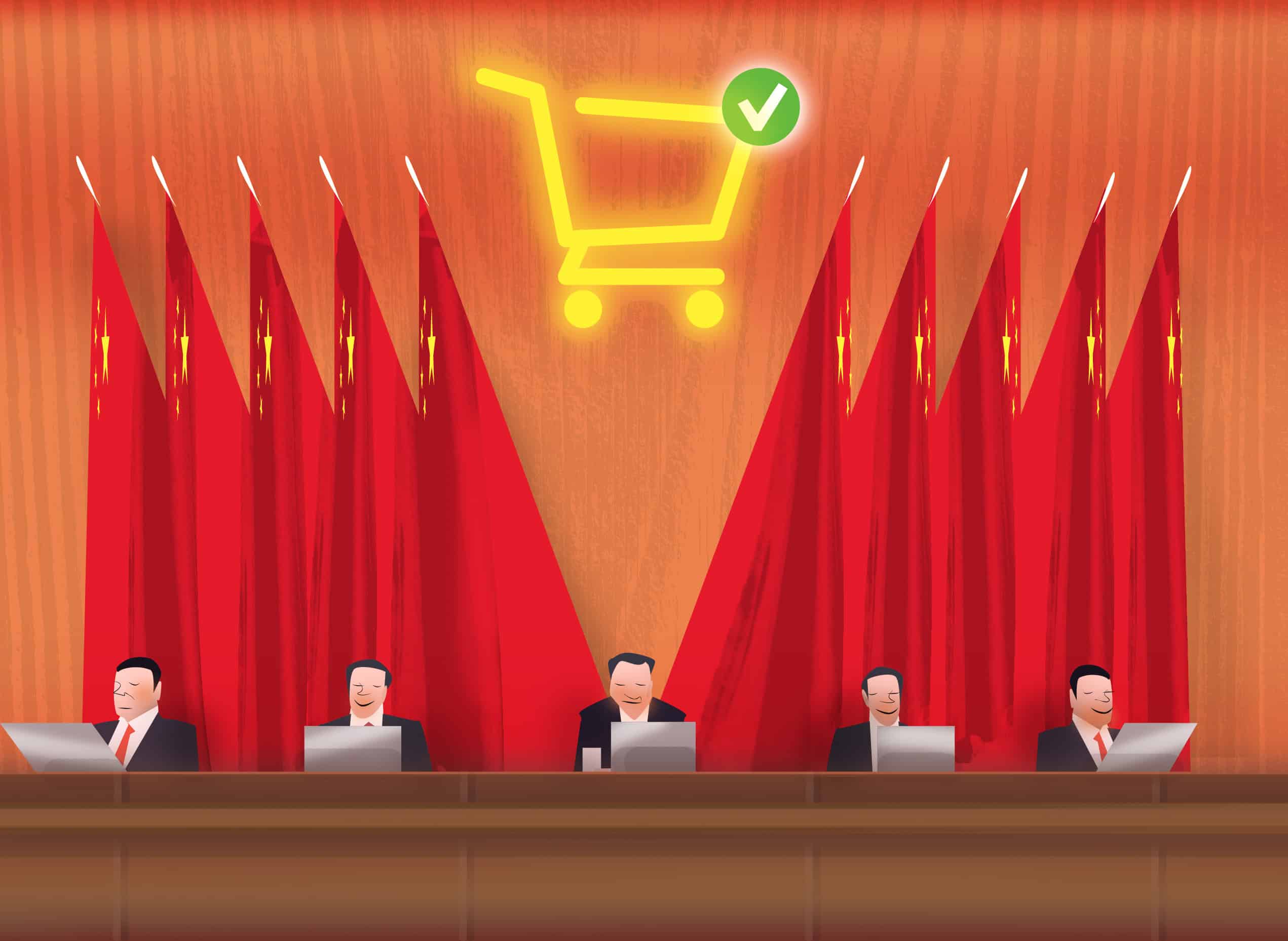As the new president-elect, Joe Biden has a chance to reset relations with China and perhaps stop the chills of a second cold war. Yet the nature of the trans-Pacific relationship has altered permanently — and not just due to four years of Trumpist pugilism. Indeed, the alliances that Beijing is forging across the globe pay scant attention to who is in the White House, and the new geopolitical realities mean that the U.S. is likely to be just as tough on China as it has been — even with a new administration in place.
Our selection of new China titles this month attempts to take in the wide scope of challenges that face America and other Western democracies as they confront those new realities: political, technological, financial, environmental, and business-oriented. From the rise of the techno-authoritarian state to the decline of U.S.-China cinematic and entertainment industry partnerships, from new global alliances and infrastructure to shifting global climate patterns and monetary standards, Biden will have his work cut out for him. As interested parties, we do too if we hope to understand it all — but these books are a good place to start.
The One to Read
We Have Been Harmonized: Life in China’s Surveillance State by Kai Strittmatter
With technology increasingly the battleground of international and cultural conflict, it is essential to understand how China’s authoritarianism is not only technocratic but tech-enabled. This readable and comprehensive book by journalist Kai Strittmatter was originally published in German in 2018, then the UK in 2019, and is now available in the United States. Strittmatter exposes how the internet and new technologies have enabled China to create the largest surveillance state in history. With facial and voice recognition, GPS tracking, cell phone surveillance, and security cameras, he argues there is nowhere to hide in today’s China. A central database with biometric data — combined with logs of social media posts and even private chat records — has applications amounting to “digital totalitarianism.” The effects of such surveillance power are already apparent in Xinjiang’s re-education camps, and in the proposed nationwide Social Credit System. Strittmatter’s prose leans toward alarmism, feeding into a paranoia over China that presumably sells books. Yet Beijing’s actions, such as just-announced regulations over its internet giants, suggest that alarmism may be warranted.
Sept. 1, 2020 | Custom House. $28.99. | Buy
The Shortlist
U.S. Strategy in the Asian Century: Empowering Allies and Partners by Abraham M. Denmark
America’s global network of allies has shifted dramatically since 1776. At first allied with France to fight Britain, the U.S. eventually led the effort to forge NATO and other democratic partnerships after the Second World War. Now it faces a new world order, and its alliances are changing with it — not least due to the disruptions of the Trump administration. This timely book outlines a strategy for the U.S. to compete with China while “navigating a multipolar Asia” (in the favored mixed metaphor of our age) and still abide by its core principles. With the balance of power moving ever east across the Pacific, Biden’s foreign policy team would be well advised to read this book.
August 18, 2020 | Columbia University Press. $30. | Buy
One Belt One Road: Chinese Power Meets the World by Eyck Freymann
Just as the Marshall plan tinged the hue of America’s relationships with European and Asian nations for decades, so too will the lasting impact of China’s Belt and Road Initiative (or BRI) reach further than is apparent today. There have been a number of recent primers on the BRI — some of them recommended before on this page — yet this monograph unscrews the nuts and bolts of the project to show how, from Sri Lanka to Greece, it is more than just about global infrastructure development. Rather, it is creating a system of patronage that echoes China’s imperial tribute networks — and the strategy is working.
Nov. 17, 2020 | Harvard East Asia Center. $60. | Buy
China’s Engine of Environmental Collapse by Richard Smith
Elections and national politics are ultimately a distraction from the biggest challenge of our time: climate and environmental crisis. In this excellent and clear primer, Richard Smith argues that China is not the climate leader that Panglossian pundits hope it to be, but an “environmental rogue state” with severe water, soil, air and food pollution as well as twice the CO2 emissions as the U.S. (in 1990, it was under half U.S. levels). China leads the world in renewable energy yet is still building coal-fired power plants by the droves. Digging deep into these contradictions, Smith reveals how China’s “police-state capitalism” is driving emissions — and how a drastic scaleback is necessary to avoid climate catastrophe.
July 20, 2020 | Pluto Press. $24.95. | Buy
Feeding the Dragon: Inside the Trillion Dollar Dilemma Facing Hollywood, the NBA, & American Business by Chris Fenton
A more unexpected field of conflict between China and the U.S. lately has been cinema and the entertainment industry. Whereas just a few years ago U.S.-China co-productions were the darlings of Hollywood producers, a distinct chill has set over such cinematic partnerships, as exemplified by controversies around the Mulan remake. China’s relations have also soured with other American entertainment brands such as the NBA in the wake of political sensitivities and cultural misunderstandings. In this punchy short book, industry insider Chris Fenton outlines the challenges facing America and China when it comes to movies, show business and professional sports, as well as rooting for greater “cultural diplomacy” to soften the hard edges of Sino-U.S. relations.
July 28, 2020 | Post Hill Press. $28. | Buy
China and the End of Global Silver, 1873–1937 by Austin Dean
Readers of this column will know we enjoy illuminating China’s present through its past — or at least point you towards books that do so. With talk of the yuan replacing the dollar as the world’s reserve currency within decades, this is a fascinating historical look back at how the once pre-eminent gold standard was defied by China’s continued reliance on silver. As China scrambled to change its monetary system, politicians and bankers clashed with the interests of colonial nations pushing their own trade agendas (sound familiar?). China’s quest to find a unified monetary standard at the end of the nineteenth century reveals an interesting parallel to its attempts to dominate the global financial order today.
Nov. 15, 2020 | Cornell University Press. $49.95. | Buy
In Case You Missed It
Big Sister, Little Sister, Red Sister: Three Women at the Heart of Twentieth-Century China by Jung Chang
Shopping season is a fresh opportunity to look up the latest history book by Jung Chang, author of Wild Swans and previous biographies of Mao Zedong and Empress Cixi. Her subjects here are the Soong sisters: ‘Red Sister,’ Soong Chingling, who married Sun Yatsen; ‘Little Sister,’ Soong Meiling, who married Chiang Kai-shek; and ‘Big Sister,’ Soong Ailing, who married China’s richest man and finance minister, HH Kung. All three held positions of power and influence in their own right, marriage aside, and shaped the future of China at its period of most fragile transition in the early twentieth century. Chang weaves their political importance into the personal fabric of their stories and relations, and reminds us that behind every great nation are the stories of its great women.
Oct. 29, 2019 | Anchor Books. $17. | Buy

Alec Ash is the books editor for The Wire. He is the author of Wish Lanterns. His work has also appeared in The Economist, BBC, SupChina, and Foreign Policy. @alecash
As an Amazon Associate, The Wire earns from qualifying purchases of books featured here.



